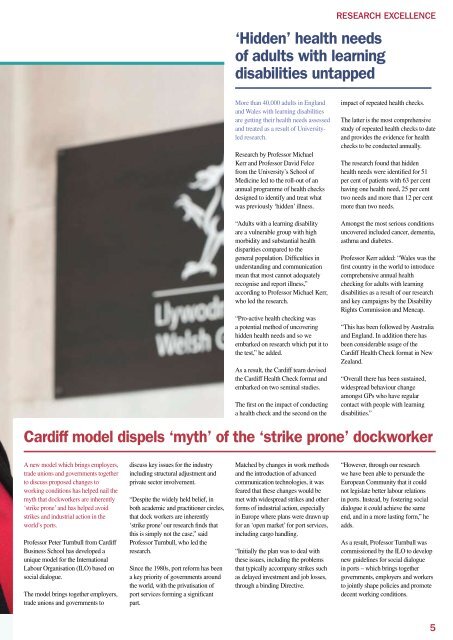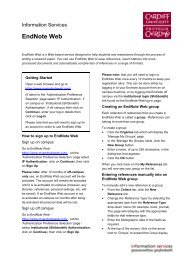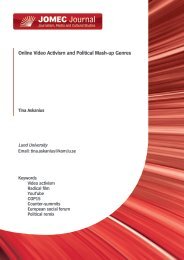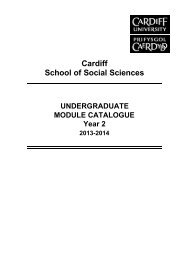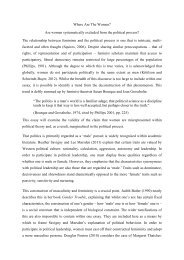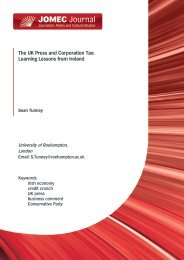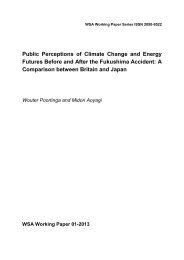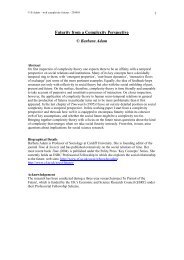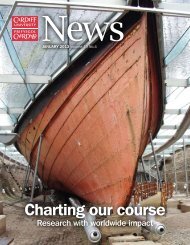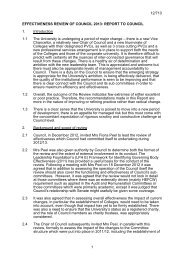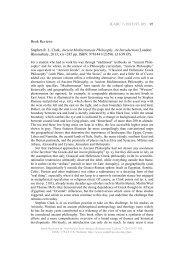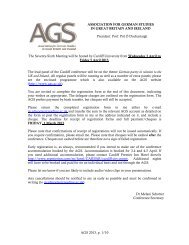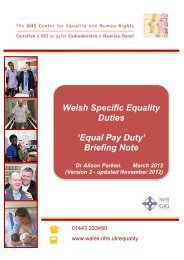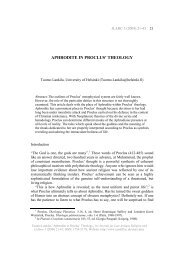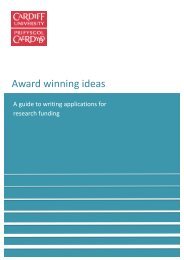Our 'Star' performer - Cardiff University
Our 'Star' performer - Cardiff University
Our 'Star' performer - Cardiff University
Create successful ePaper yourself
Turn your PDF publications into a flip-book with our unique Google optimized e-Paper software.
Research Excellence<br />
‘Hidden’ health needs<br />
of adults with learning<br />
disabilities untapped<br />
More than 40,000 adults in England<br />
and Wales with learning disabilities<br />
are getting their health needs assessed<br />
and treated as a result of <strong>University</strong>led<br />
research.<br />
Research by Professor Michael<br />
Kerr and Professor David Felce<br />
from the <strong>University</strong>’s School of<br />
Medicine led to the roll-out of an<br />
annual programme of health checks<br />
designed to identify and treat what<br />
was previously ‘hidden’ illness.<br />
impact of repeated health checks.<br />
The latter is the most comprehensive<br />
study of repeated health checks to date<br />
and provides the evidence for health<br />
checks to be conducted annually.<br />
The research found that hidden<br />
health needs were identified for 51<br />
per cent of patients with 63 per cent<br />
having one health need, 25 per cent<br />
two needs and more than 12 per cent<br />
more than two needs.<br />
“Adults with a learning disability<br />
are a vulnerable group with high<br />
morbidity and substantial health<br />
disparities compared to the<br />
general population. Difficulties in<br />
understanding and communication<br />
mean that most cannot adequately<br />
recognise and report illness,”<br />
according to Professor Michael Kerr,<br />
who led the research.<br />
“Pro-active health checking was<br />
a potential method of uncovering<br />
hidden health needs and so we<br />
embarked on research which put it to<br />
the test,” he added.<br />
As a result, the <strong>Cardiff</strong> team devised<br />
the <strong>Cardiff</strong> Health Check format and<br />
embarked on two seminal studies.<br />
The first on the impact of conducting<br />
a health check and the second on the<br />
Amongst the most serious conditions<br />
uncovered included cancer, dementia,<br />
asthma and diabetes.<br />
Professor Kerr added: “Wales was the<br />
first country in the world to introduce<br />
comprehensive annual health<br />
checking for adults with learning<br />
disabilities as a result of our research<br />
and key campaigns by the Disability<br />
Rights Commission and Mencap.<br />
“This has been followed by Australia<br />
and England. In addition there has<br />
been considerable usage of the<br />
<strong>Cardiff</strong> Health Check format in New<br />
Zealand.<br />
“Overall there has been sustained,<br />
widespread behaviour change<br />
amongst GPs who have regular<br />
contact with people with learning<br />
disabilities.”<br />
<strong>Cardiff</strong> model dispels ‘myth’ of the ‘strike prone’ dockworker<br />
A new model which brings employers,<br />
trade unions and governments together<br />
to discuss proposed changes to<br />
working conditions has helped nail the<br />
myth that dockworkers are inherently<br />
‘strike prone’ and has helped avoid<br />
strikes and industrial action in the<br />
world’s ports.<br />
Professor Peter Turnbull from <strong>Cardiff</strong><br />
Business School has developed a<br />
unique model for the International<br />
Labour Organisation (ILO) based on<br />
social dialogue.<br />
The model brings together employers,<br />
trade unions and governments to<br />
discuss key issues for the industry<br />
including structural adjustment and<br />
private sector involvement.<br />
“Despite the widely held belief, in<br />
both academic and practitioner circles,<br />
that dock workers are inherently<br />
‘strike prone’ our research finds that<br />
this is simply not the case,” said<br />
Professor Turnbull, who led the<br />
research.<br />
Since the 1980s, port reform has been<br />
a key priority of governments around<br />
the world, with the privatisation of<br />
port services forming a significant<br />
part.<br />
Matched by changes in work methods<br />
and the introduction of advanced<br />
communication technologies, it was<br />
feared that these changes would be<br />
met with widespread strikes and other<br />
forms of industrial action, especially<br />
in Europe where plans were drawn up<br />
for an ‘open market’ for port services,<br />
including cargo handling.<br />
“Initially the plan was to deal with<br />
these issues, including the problems<br />
that typically accompany strikes such<br />
as delayed investment and job losses,<br />
through a binding Directive.<br />
“However, through our research<br />
we have been able to persuade the<br />
European Community that it could<br />
not legislate better labour relations<br />
in ports. Instead, by fostering social<br />
dialogue it could achieve the same<br />
end, and in a more lasting form,” he<br />
adds.<br />
As a result, Professor Turnbull was<br />
commissioned by the ILO to develop<br />
new guidelines for social dialogue<br />
in ports – which brings together<br />
governments, employers and workers<br />
to jointly shape policies and promote<br />
decent working conditions.<br />
5


